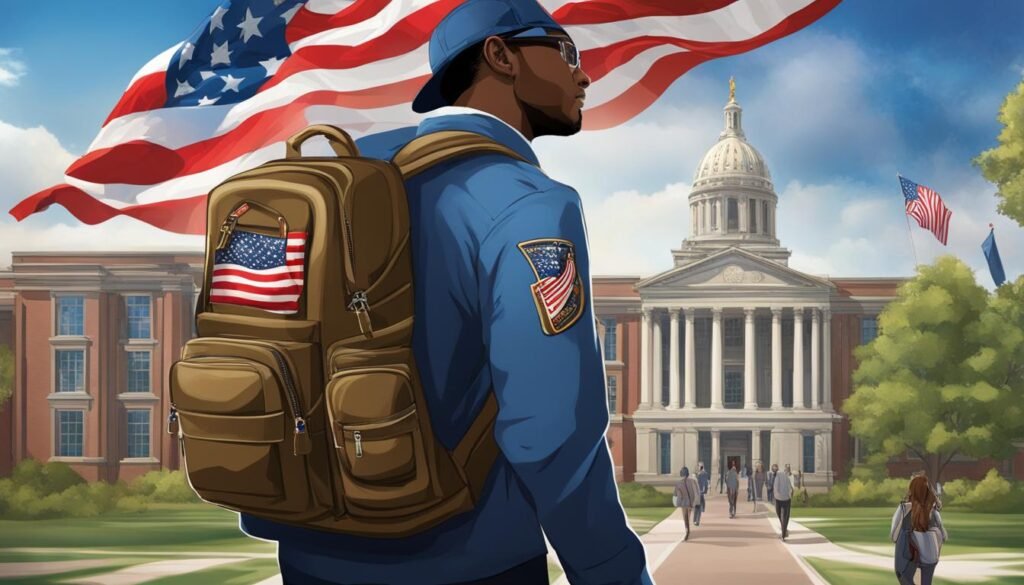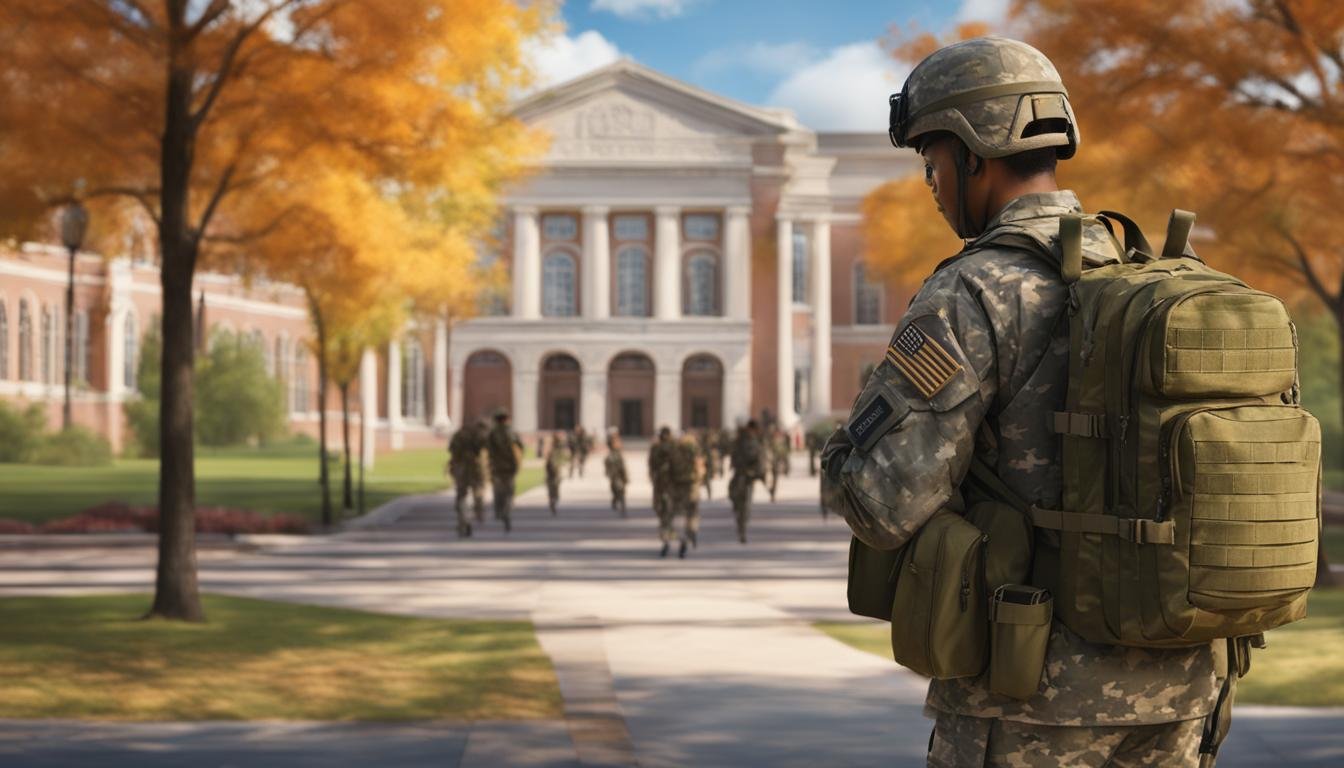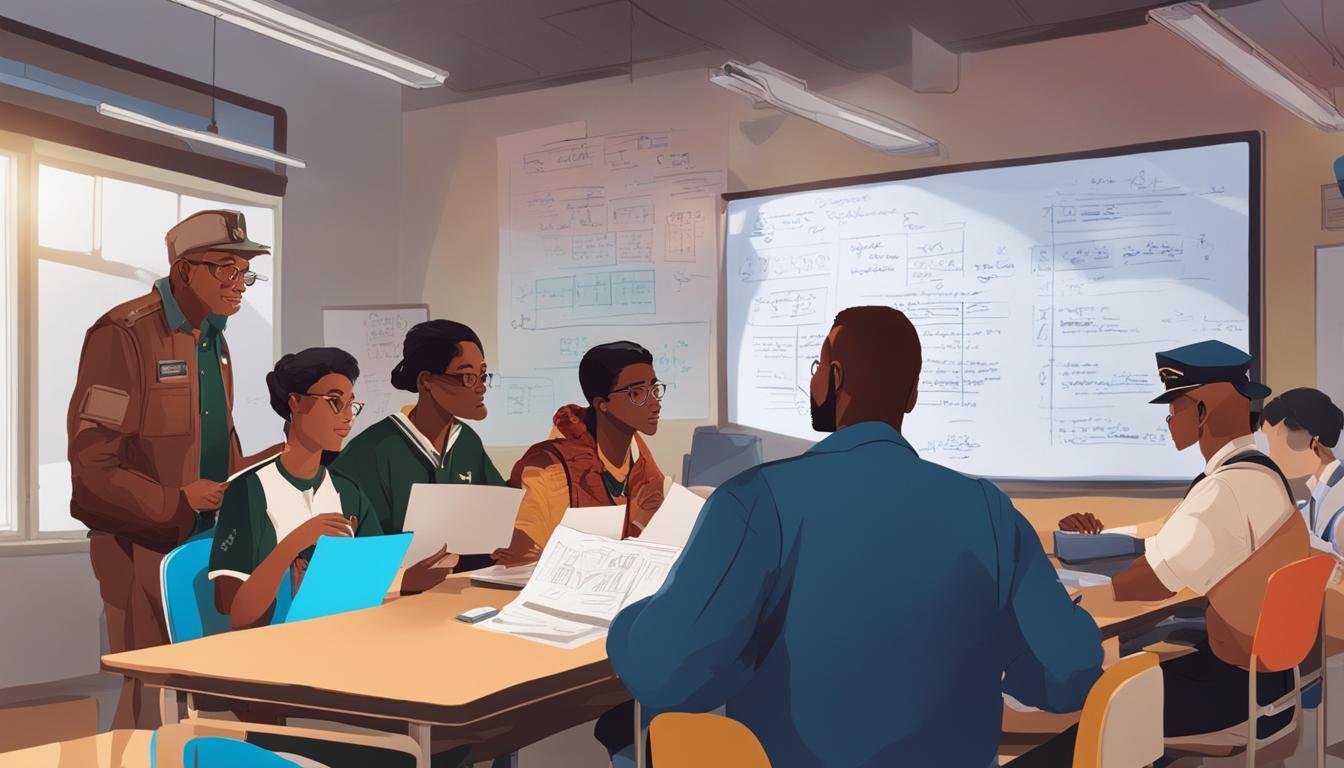Transitioning from the military to college can be a major adjustment for veterans. However, earning a college degree brings numerous benefits, including higher wages, increased marketability, and greater job satisfaction. Many veterans may question their ability to succeed in college or may feel anxious about the unique challenges they may face. It’s important for veterans to know that there are support systems in place to help them make a successful transition and pursue their educational goals. Building a support system, setting clear goals, understanding available benefits, and choosing a military-friendly college are all important factors for veterans to consider when transitioning to college life.
Key Takeaways:
- Transitioning to college life can be challenging for veterans, but there are support systems available to help.
- Building a support system and setting clear goals are crucial for a successful transition to college.
- Understanding available benefits and choosing a military-friendly college can maximize support and funding.
- Exploring distance or online learning options and transferring military credits can ease the transition.
- Applying for financial aid can help cover any remaining costs.
Tips for Applying and Transitioning to College After the Military

Applying to college after the military requires careful preparation and planning. Building a support system early on is crucial, as it helps veterans navigate the challenges they may face while pursuing their educational goals. Setting clear goals before applying to college helps veterans make informed decisions about their education and career paths. Understanding available benefits, such as the Post-9/11 GI Bill, and looking for military-friendly colleges can maximize funding and support for veterans. Additionally, veterans should explore distance or online learning options, consider transferring credits from their military experience, and apply for financial aid to cover any remaining costs.
When it comes to applying to college after the military, having a strong support system in place is essential. Reach out to fellow veterans, family, friends, and counseling services to create a network of individuals who can offer guidance and encouragement throughout the transition. These individuals can provide valuable insights about the college application process, share their own experiences, and help you navigate any challenges that may arise.
Setting clear goals before applying to college is crucial for veterans. Take the time to reflect on your interests, passions, and career aspirations. This will help you choose a college and program that aligns with your long-term goals. Consider what type of degree you want to pursue, whether it’s a bachelor’s, associate’s, or vocational program. Research different colleges and universities to find the ones that offer programs relevant to your field of interest.
Understanding the benefits available to veterans is also important. The Post-9/11 GI Bill provides financial support for education and housing expenses. Take the time to learn about the eligibility requirements and benefits provided by this bill, as it can significantly reduce the financial burden of college. Additionally, look for colleges that have a strong commitment to supporting veteran students. These institutions often have dedicated resources, such as veteran centers and advisors, to assist with the transition and provide ongoing support.
Benefits of Distance Learning and Transferring Military Credits
Exploring distance or online learning options can be beneficial for veterans. These flexible formats allow veterans to balance their education with other commitments, such as work or family responsibilities. Distance learning can also be a great option for veterans who may live in remote areas or have limited access to traditional college campuses.
Additionally, veterans should look into transferring credits from their military experience. Many colleges and universities have established procedures for evaluating and granting credits for military training and experience. Transferring credits can help expedite the completion of your degree and potentially save you time and money.
| Benefits of Distance Learning and Transferring Military Credits | Distance Learning | Transferring Military Credits |
|---|---|---|
| Flexibility | Allows veterans to balance education with other commitments | Expedite degree completion |
| Accessibility | Can be a great option for veterans in remote areas | Potentially save time and money |
| Convenience | Eliminates the need for commuting to a physical campus | Recognizes the value of military training and experience |
Applying for Financial Aid
Finally, veterans should apply for financial aid to cover any remaining costs of their education. The Free Application for Federal Student Aid (FAFSA) is a key resource for accessing federal grants, loans, and work-study opportunities. Completing the FAFSA allows you to determine your eligibility for various forms of financial aid and ensure that you’re maximizing your options for funding your education.
Remember that transitioning to college after the military is a significant step, but with careful planning, support, and the use of available resources, it can be a rewarding and successful endeavor. By following these tips and taking advantage of the support systems in place, you’ll be well on your way to a smooth transition and a fulfilling college experience.
What Housing Advice Do You Have for Veterans Transitioning to College Life?
When transitioning to college life, it’s crucial for veterans to explore the various housing options for veterans students available on and off campus. Research local VA housing resources, consider using GI Bill benefits, and connect with veteran support groups to find suitable living arrangements while pursuing their education.
Overcoming Challenges and Seeking Support as a Veteran in College
Transitioning to college life can bring its own set of unique challenges for veterans. However, it is important to remember that you are not alone in this journey. There are numerous support resources available to help you succeed both academically and personally.
One important aspect is overcoming the stigma surrounding seeking support. Remember that reaching out for assistance is a sign of strength, and it allows you to access the resources and guidance you need. Many colleges offer support services specifically tailored to the needs of veteran students. Take advantage of these resources, such as tutoring programs or study groups, to adapt your learning strategies to the college environment.
Another vital aspect is prioritizing your mental health. College can be demanding, and it is crucial to take care of your well-being. Most campuses provide mental health services for students, so don’t hesitate to seek help if you need it. Additionally, organizations like the Veterans Crisis Line are available 24/7 to provide immediate support and resources for veterans.
Lastly, connecting with fellow veterans can make a significant difference in your college experience. Finding a community of individuals who understand your unique journey can help combat feelings of isolation. Participate in veteran organizations or clubs on campus, attend veteran-specific events, and engage with online communities. Building these connections will provide you with a support system that understands and appreciates your experiences.



